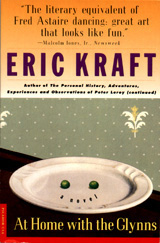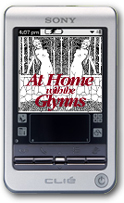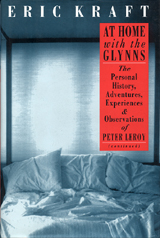
YOU CAN READ
THE FIRST HALF OF
THE BOOK
(21 CHAPTERS)
HERE,
ONLINE,
OR,
FOR MAXIMUM PORTABILITY
AND CONVENIENCE
WHEN READING
ON THE BEACH
OR
IN THE TUB,
YOU CAN BUY THE
PICADOR USA
PAPERBACK EDITION AT
AMAZON.COM
OR
BARNES&NOBLE.COM
OR
YOU CAN DOWNLOAD
THE COMPLETE TEXT
AS AN
eBOOK
AND
READ IT ON A PDA.

|
Chapter 10
The Night the Nevsky Mansion Burned
 Y
MOTHER felt the chill, and she gave a little shudder, and she linked one
arm with Bert’s and the other with Buster’s and drew the boys closer to
her. Y
MOTHER felt the chill, and she gave a little shudder, and she linked one
arm with Bert’s and the other with Buster’s and drew the boys closer to
her.
“What do you suppose it means?” she asked.
She shuddered again.
“Means?” asked my father.
“Yes,” said my mother. “I mean, it must
mean
something, don’t you think?”
“Why?” asked my father.
“I don’t know why, exactly,” said my mother.
“Maybe I’m just being silly, but doesn’t it seem a little weird to you—the
way we were all drawn here by it?”
“Huh?” said my father.
“I see what you mean,” said Buster.
“You do?” said my father.
“I think so,” said Buster.
“Well, let me in on it, will you?” said my father,
meaning to be funny. “I’m completely in the dark.”
“It’s just,” said Buster, “it’s just, the way it
interrupted everything, the way one minute we were going about our business,
doing whatever we were doing, and the next minute we noticed the fire in
the sky, or maybe we heard the sirens, and from then on the fire took over.
It took us over. You see what I mean?”
“Um, yeah,” said my father, and here he may have
blushed, because it wouldn’t have been at all unlikely, I think, that at
the time when he had heard the siren, he had been rummaging through
his brother’s dresser drawers searching for notes from my mother or snapshots
of her.
(Buster would almost certainly have had snapshots
of her, since he was an amateur photographer with a darkroom in the basement.
So my father would probably have been looking at Buster’s snapshots of
my mother when the sirens sounded. At the time, my mother was equally
enamored of both of the Leroy boys and couldn’t decide which one her heart
favored, and if my father had been searching through Buster’s things, then
he would have reacted with a start when he heard the sirens and would have
tried quickly to arrange the notes and snapshots as he’d found them.
Buster’s mentioning the sirens would have reminded my father of all that
and brought to his mind the likelihood that later that evening, when they
returned home after the fire had burned out or had been extinguished by
the Babbington Volunteer Hose Company, Buster would notice that his mementoes
of my mother had been disturbed. Later, after Buster was killed in
the war, my father inherited Buster’s snapshots of my mother, and the portraits
and figure studies he had made of May Castle, a friend of my grandparents’,
and his photographic gear.)
“That’s right!” said my mother. “I’ll bet
that all of us here, for the rest of our lives, will remember what we were
doing when we heard the sirens or saw the glow. And of course we’ll
always remember this night.”
She looked at Buster with dreamy eyes, eyes aglow
with more than the flames from the Nevsky mansion, and thought to herself
that it was most certainly true, that she certainly would remember this
night. She gave Buster’s arm a little squeeze, drew him a little
closer to her.
“So, it seems as if it must mean something,”
said Buster. “As if it ought to mean something—especially
to us, the people it brought together here.”
“Wow! Too deep for me,” said my father, with
the dismissive wave that I would come to know well by the time I reached
his age—that is, the age he was on the night the Nevsky mansion burned.
My mother drew Buster a little closer still, and
he returned her squeeze.
“I couldn’t help overhearing,” said a voice from
behind them.
It was Mr. Locke, the principal of the high school.
Joining the group, he moved in behind them, tossed his arms in a comradely
way across the shoulders of the Leroy boys, and embraced the entire trio,
pressing himself, at the height of the embrace, up against my mother’s
teenage bottom. My mother turned to give him what she meant to be
a withering look, and in turning she noticed her parents, my grandparents,
Gumma and Guppa, standing a bit apart from the crowd, watching the fire
with everyone else, but wearing the queerest smiles, as if something in
the fire brought them pleasure. Those queer smiles puzzled my mother,
for they raised the heretofore unthinkable possibility that the fire might
bring someone something like pleasure, and that possibility seemed to say
something about how individual our responses to events are, even to events
that seem to have such universal significance. That thought made
my mother realize that she, too, had been taking a kind of pleasure from
the fire, that it seemed somehow to have shown her how much she loved Buster.
She wanted to draw the attention of Bert and Buster, and even Mr. Locke,
to the queer smiles her parents were wearing and find out what they made
of them. She decided to speak, to wonder aloud whether her parents’
queer smiles might not contradict everything she and Buster had just suggested
about the fire and the universality of its effect on its audience.
“Gee,” she began, but her attention was diverted
from her own thoughts when Mr. Locke stopped squeezing the shoulders of
the Leroy boys and turned his attentions to her shoulders instead.
While kneading her, he continued his own remarks, thus:
“If I may paraphrase what you’ve been saying, the
fire is such a spectacular event that it seems as if it ought to be more
than merely what it apparently is—a big fire. It seems as if it ought
to be a sign of something, something that, to judge from the compelling
brilliance of its sign, must be particularly significant for those it has
drawn to it, attractive nuisance that it is.”
“Yes, sir,” said Buster.
“We have the feeling, don’t we, that the fire,
this sign, and this moment when it has appeared to us, must mark
the end of something—or—and here we think of the Phoenix,
don’t we?—the beginning of something. Some of those gathered
here, I’m sure, will find that it marks the end of childhood and the beginning
of manhood—or”—and here he kneaded my mother with increased vigor—“womanhood.
Others will discover, because popular songs have taught them to look for
this particular discovery in nearly every significant moment, that
it marks either the first spark of love or its last dying embers.”
My mother blushed, but in the rosy glow of the fire,
it’s unlikely that anyone noticed.
“And in the years to come,” Mr. Locke went on, “I
fear that this night, this fire, this moment, may seem like even more of
a portent.”
“How so, sir?” asked my father. He jabbed
my mother in the ribs and winked when she looked at him.
“When the sound of sirens has come to inspire in
us a terror that we haven’t had to confront before,” said Mr. Locke, “we
are all going to remember this fire and we are going to be mightily
tempted to see it as a sign of something—especially as the end of
something, as the end of our halcyon days. Perhaps I ought to say
the end of your halcyon days. Mine—well, that’s beside
the point. Then, I think, when everything seems to have come apart,
when everything seems to have gone up in smoke, you may see this fire blaze
again—in recollection, that is—and say to yourself, ‘My world
was on fire that night, and the innocence of my youth went up in the flames.’”
“What’s he talking about?” my father asked in a
murmur.
“The war?” suggested my mother.
“Yeah,” said Buster, with clenched jaw.
“But does it?” asked Mr. Locke.
“Jeez, he’s unstoppable,” muttered my father.
“Does it what?” asked my mother, who had gotten
a little lost.
“Does it mean any of those things?” Mr. Locke asked.
“Does it mean anything?”
My mother, my father, and Buster stared at the burning
building. The flames illuminated their young faces. My mother
seemed entranced. She wore a blissful smile. She was quite
certain that the fire would always mean something to her, that as
the years passed she would look back at the night the Nevsky mansion burned
as the night she chose Buster.
Buster’s jaw was still set, and in the fire he saw
its horrible meaning: the inevitable coming of the war.
My father blinked into the light, annoyed with himself
for not seeing in it a sign of anything. Does it mean anything?
he wondered.
“No,” said Mr. Locke, answering his own question.
“It means nothing, nothing at all. The cosmos doesn’t work
that way. It sends us no signs. It has no meaning. It
sweeps along, full of sound and fury, signifying nothing.”
My mother knit her brows and held Buster tighter
still. Buster frowned into the light of the fire, but he returned
my mother’s squeeze with a kind of grim protectiveness that worried her.
My father smiled.
“I know where that’s from,” said my father.
“Good for you, Buster,” said Mr. Locke.
“Bert,” said my father.
“Of course,” said Mr. Locke, with a chuckle.
He seemed to think that my father was mistaken but should be humored.
“The meanings we find in events are ours alone. The meanings follow
after the events, the laggard stepchildren of the facts. Our
reason struggles to keep up, to make sense of it all, but we don’t
make sense of it all, we manage only a patchwork of attempts to make sense
of it, because we’re trying to make sense of things for which sense
is a completely irrelevant notion.”
He gave my mother’s shoulders a final squeeze, pressed
himself once again against her bottom, and walked off into the chilly darkness
outside the rosy ring of the fire.
“Thanks a lot, Mr. Locke,” muttered Buster.
“Next time, keep your ideas to yourself.”
“Keep your hands to yourself,” said my father.
“And that’s not all,” said my mother.
|

|



 Here
are a couple of swell ideas from Eric Kraft's vivacious publicist, Candi
Lee Manning:
Here
are a couple of swell ideas from Eric Kraft's vivacious publicist, Candi
Lee Manning: